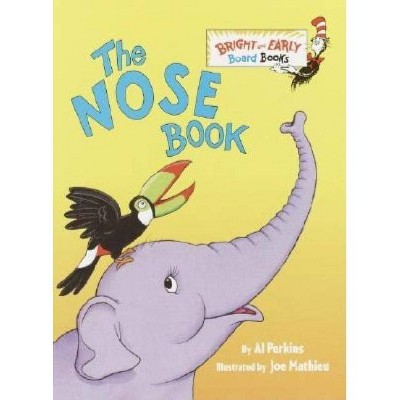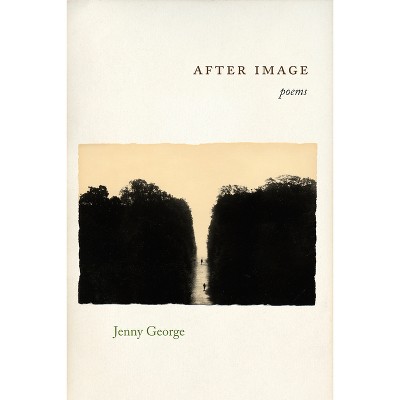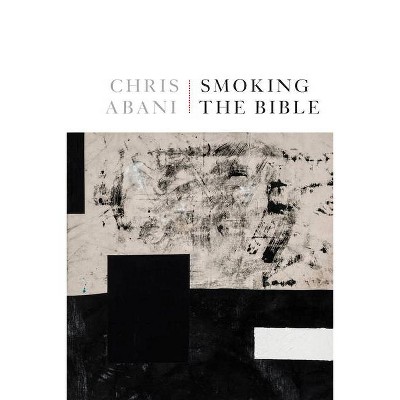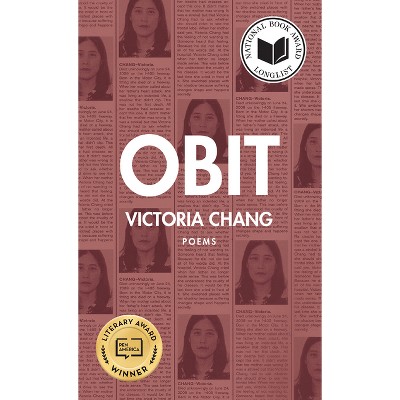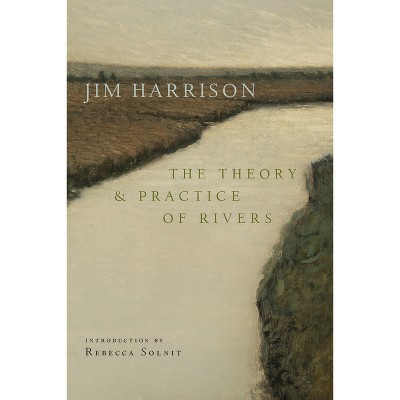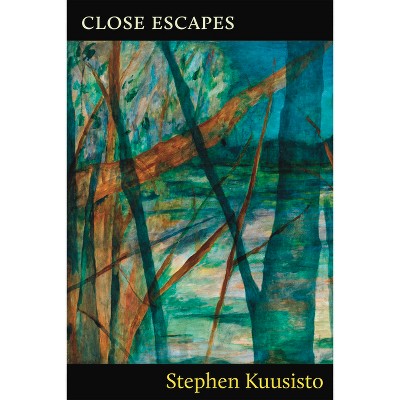Sponsored

The Man in 119 - by Kazim Ali (Paperback)
Pre-order
Sponsored
About this item
Highlights
- Kazim Ali's latest collection uses a migrant geography to explore how the self moves through grief.The Man in 119, the latest collection from accomplished poet Kazim Ali, explores loss and absence alongside the human body and the natural world.
- About the Author: Kazim Ali was born in the United Kingdom and has lived transnationally in the United States, Canada, India, France, and the Middle East.
- 120 Pages
- Poetry, Subjects & Themes
Description
Book Synopsis
Kazim Ali's latest collection uses a migrant geography to explore how the self moves through grief.
The Man in 119, the latest collection from accomplished poet Kazim Ali, explores loss and absence alongside the human body and the natural world. Here, the tongue becomes a collaboration between human and glacial current--the self, a "tectonic topography of god." Grappling with questions of mortality in the wake of his mother's death, Ali asks where we go when we leave this world: "earth or sky or memory only." With musicality, these poems build a space for contemplation, offering vignettes of various individuals, memories, and geographies. We learn that in migration, the body moves, reproduces itself through the experience of losing and living still.
Review Quotes
Praise for Sukun: New and Selected Poems
"[T]his dazzling retrospective showcases Ali's multifaceted voice in poems of lyric daring. Ali's linguistic interests are seemingly infinite--from the Vedas to the roots of English and Arabic--but common threads reach across the poems, including migration, prayer, and the creative act itself. Contemplative yet grounded, these poems form surprising and impactful connections."--Publishers Weekly
"Ali's prolific, lyrical output is defined by the author's queer and Arab identities, and consistent themes surface, such as orchestral corporeality, inscrutable divinity, and linguistic uncertainty. Equal parts obliquely profound and candidly straightforward, this mid-career compilation captures an accomplished poet's already astonishing body of work."--Diego Báez, Booklist
"In his 2010 essay 'Faith and Silence, ' Kazim Ali writes: 'If there are a hundred unmentioned books in the world, it stands to reason, my father thought, that all peoples of the world, in all various times, must have had revelatory texts--why would anyone be left out of salvation, he wondered?' That essay serves as the coda to Sukun, Ali's collection of new and selected poems. Article 1.3 of the UNESCO declaration proclaims that tolerance 'involves the rejection of dogmatism and absolutism.' If readers were to truly appreciate the poetry that undergirds the 'revelatory texts' of every faith tradition, the light of tolerance and understanding might prevail over the poisonous absolutisms of 2023."--Daniel Simon, World Literature Today
"A comprehensive and stunningly beautiful collection of poems that explore the self in the world often through some form of remove, such as travel or being in a new place. The poems offer to lift us out of the mundane and into a sacred space or heightened brightness."--Judy Halebsky, author of Spring and a Thousand Years (Unabridged)
"Exquisitely paced, Sukun is testament to Kazim Ali's distinctive accomplishment as our wandering, ever-questing poet. As one word, one sound, gives birth to another, so these poems trace the path from son to a finally accepting family, from body to spirit, from earth to cosmos."--Gillian Conoley, author of Notes from the Passenger
"A compilation from the heart and hand of an intense lyricist explores questions of queer love, spirituality, and the idea of home. Celebratory and poignant, vulnerable and wise, Ali works to honor a transnational lineage while also redrawing a genderless line of pilgrim prophet seekers."--Soham Patel, author of all one in the end--/water
"Praise for Northern Light: Power, Land, and the Memory of Water
"A powerful, thoughtful, and beautifully written exploration of the narratives that we create and that are created for us."--Book Riot, "Best Books of 2021"
"In Northern Light . . . [Ali grapples] with his family's legacy as both victims and perpetrators of stolen land. On every page, he tries to decipher what it means to be 'from' a place, crafting poetic exploration of home, assimilation, and belonging."--Outside Magazine, "Favorite Books of 2021"
About the Author
Kazim Ali was born in the United Kingdom and has lived transnationally in the United States, Canada, India, France, and the Middle East. He has written novels, essay collections, translations, a work of memoir, and several poetry collections, including Sukun (Wesleyan University Press, 2023), The Voice of Sheila Chandra (Alice James Books, 2020), Inquisition (Wesleyan University Press, 2018), All One's Blue (HarperCollins India, 2016), Wind Instrument (Spork Press, 2014), Sky Ward (Wesleyan University Press, 2012), winner of the Ohioana Book Award in Poetry; Bright Felon (Wesleyan University Press, 2009); The Fortieth Day (BOA Editions, 2008); and The Far Mosque (Alice James Books, 2005), winner of Alice James Books' New England/New York Award. He has also edited New Moons, an anthology of writing by North American Muslims and written essay collections on the poetics of Lucille Clifton and Agha Shahid Ali. He is a Professor of Literature at the University of California, San Diego and founder of the non-profit small poetry press, Nightboat Books.
Shipping details
Return details
Trending Book Pre-Orders










